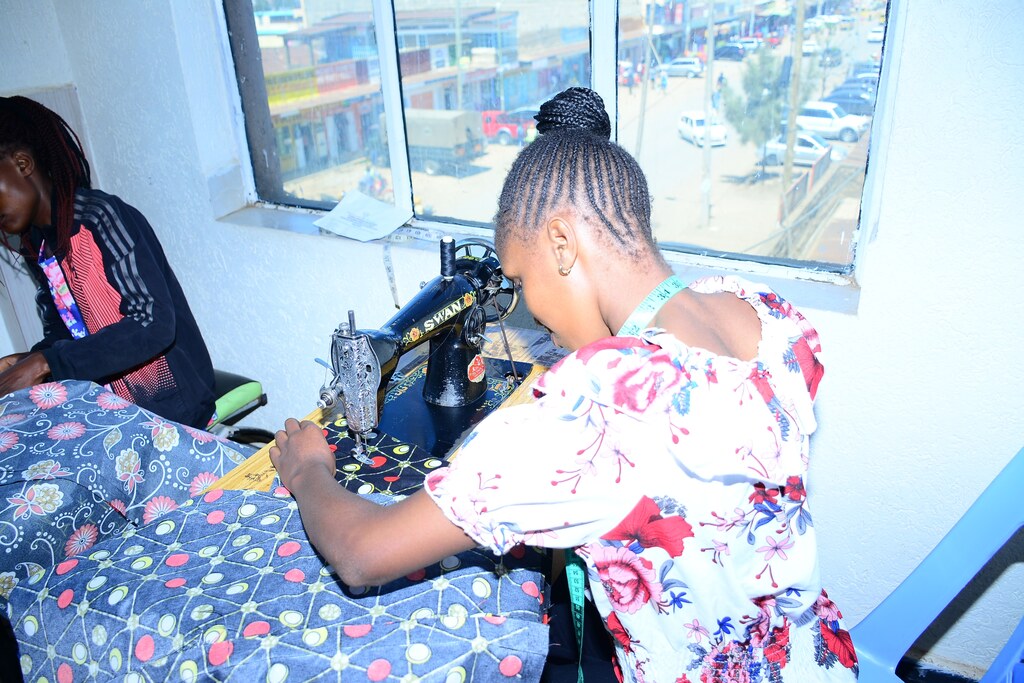Project Overview
“Training and Employment for Children and Youth at Risk of Sexual Exploitation”
Project Duration: January 2022 – December 2024
Location: Gilgil and Naivasha Sub-Counties, Kenya
Implementing Partner: K-NOTE – Kenya National Outreach, Counselling and Training Programme
Supported By: TdH Netherlands & VW Employees Foundation
Target Group: Children and youth (16–24 years), parents, community members, business owners, local authorities
Project Goal
To reduce the sexual exploitation of children and youth in Naivasha and Gilgil by expanding economic opportunities and building responsive community and institutional protection structures.
Key Achievements
1. Vocational and Job Skills Training
- 203 youth (157 females, 46 males) enrolled in vocational training
- Over 90% pass rate in NITA examinations
- Training offered in hospitality, hairdressing, plumbing, beauty, electrical, and dressmaking
2. Integrated Life Skills & Reproductive Health Education
- All 203 participants trained in self-esteem, communication, assertiveness, SRH, and financial literacy
- Special support services provided based on need assessments (housing, childcare, medical care, assistive devices)
3. Internships and Mentorship
- 178 participants placed in internships with local businesses
- Hands-on mentorship sessions delivered by industry experts
- Participants exposed to real-world job environments, building confidence and employability
4. Start-Up Kit Distribution & Business Support
- 122 youth received start-up kits to launch businesses
- Participants earn up to KES 200 per day (~€1.40), improving livelihoods
- 203 youth received ongoing mentorship and business coaching
- Challenges included high business costs, limited customer base, and weak reinvestment capacity
Community and Systems Engagement
5. Community Change Agents
- 100 community leaders (60 men, 40 women) trained
- Reached 5,954 people through community-led dialogues
- Triggered increased SEC reporting and local interventions
6. Private Sector Engagement
- 40 businesses developed and implemented Child Protection Codes of Conduct
- Businesses actively denied entry to suspected perpetrators and supported SEC awareness
7. Nyumba Kumi Involvement
- 30 elders trained across 10 clusters
- Reported and addressed 17 SEC/child abuse cases
- Used local forums like chiefs' meetings and religious events for sensitization
8. Parental Engagement
- 202 parents/guardians trained on parenting and SEC prevention
- Improved child-parent communication and responsiveness to warning signs
Strengthening Institutional Systems
9. Government Stakeholder Training
- 60 SCAAC members and 37 police officers trained
- Improved coordination in prevention, reporting, and response to SEC
- Resulted in successful prosecution of multiple offenders
10. Community Response Forums (CRF)
- Regular forums with police, CSOs, judiciary, and child protection actors
- Shared case studies, developed joint action plans, and addressed SEC drivers
Research and Learning
11. SEC Research
- Research on drivers, hotspots, and actors of SEC in Naivasha & Gilgil
- Findings shared at a global child protection conference
- Informed design of a new follow-up project
12. Child Participation
- Children involved in:
- Co-creation workshops
- Research validation
- Day of the African Child events
- Africa Children’s Summit
- Child-friendly SEC research version developed by youth
Impact at a Glance
- 46 youth secured formal employment
- 36 youth consistently earning income through their businesses
- 87% of trained business owners prevented potential SEC incidents
- 100% of youth report sharing project knowledge with peers
- 203 youth completed life skills and SRH training
- 202 parents now actively support SEC prevention
Safeguarding and Accountability
- Safeguarding training for all stakeholders, including children and youth
- Clear reporting channels established (staff contacts, 116 toll-free line)
- Safeguarding policies reviewed and strengthened during project cycle
Key Lessons and Future Direction
- Regular follow-ups with trained actors (police, business owners) are critical
- Business sustainability support (financial literacy, market access) must be deepened
- Next Phase: “Learning to Earning: Empower and Protect Vulnerable Youth Project” planned, integrating lessons learned
Quotes from Participants
"I now have my own skills that will help me earn and support my mother, siblings, and my child."
"Financial literacy has enabled me to understand saving and budgeting."
"These glasses saved my life—I can now see clearly and cross roads safely."
